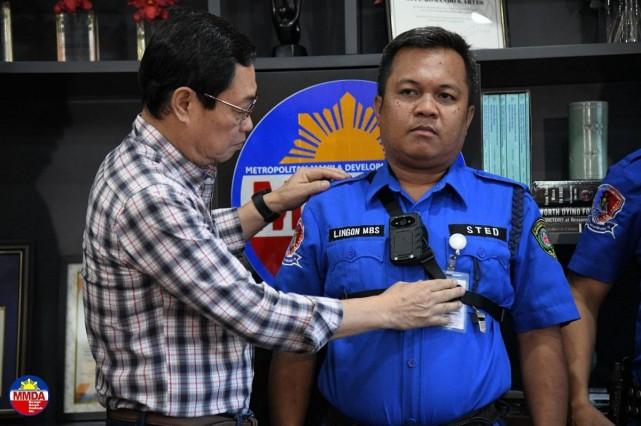MMDA, stakeholders discuss use of body cameras during traffic apprehensions
The Metropolitan Manila Development Authority (MMDA) has consulted with stakeholders on the drafted rules on traffic enforcers' use of body worn cameras.
During the consultation held Wednesday, the MMDA presented the rules on the procedures when flagging down motorists as well as what traffic enforcers should say when motorists object to being recorded and if they invoke their right to privacy.

Transport group PASANG MASDA national president Obet Martin appreciated the initiative, while 1-Rider party-list Representative Bonifacio Bosita expressed his support to the program, according to the MMDA in a statement.
MMDA chief Romando Artes said the stakeholders' comments will be consolidated and be presented to the Metro Manila Council (MMC), the MMDA’s policy-making body.
“We want to hear the comments and suggestions of the stakeholders before its full implementation,” Artes said.
According to Artes, the use of body-worn cameras will prevent traffic enforcers from taking bribes and motorists offering bribes since the Metrobase will record the apprehension process.
“The footage may serve as evidence,” he said.
According to him, the body-worn cameras are similar to gadgets being used in the United Kingdom, which have six to eight hours of battery life.
The MMDA said 120 body cameras will be initially distributed to traffic enforcers who are authorized to issue citation tickets to traffic violators.
Also present in the meeting were public transport groups, motorcycle riders’ associations, and automobile associations, the MMDA said.
Representatives from the 1-Rider Party-List, Philippine National Police-Highway Patrol Group, Metro Manila local government units, and concerned government agencies also joined the consultation, it added. —Joviland Rita/KBK, GMA Integrated News




